Fobia: St. Dinfna Hotel puts you in the shoes of investigative reporter Roberto. A message from a woman named Stephanie brings him to a distant countryside, ground zero for mysterious disappearances and strange happenings. Upon her recommendation, he checks into the St. Dinfna Hotel, and everything seems fine, although his contact never responds to emails. Just as he's about to give up and leave town, he awakens in his room, the entire hotel is a broken mess that's filled with monsters and spooky visions. Roberto must figure out what happened to the hotel — and himself — before he ends up as another victim.
The core problem with the plot is the protagonist. Roberto makes Ethan Winters look like the epitome of competence and charisma. He's weirdly blasé about some things, weirdly overreacts to others, and generally seems to come across as whiny and unlikeable more than he should. It isn't helped by the fact his voice actor feels terribly cast for the role and doesn't sell any of the emotions he should. If you can get past that, it's an interesting supernatural horror game, and it's heavily inspired by Outlast and Silent Hill — sometimes to its determent.
The game can be effectively spooky. It relies heavily on ominous noises, quick flashes, and jump-scares, but it wields the tools effectively. Perhaps the weakest moments in the game involve the monsters that you can fight directly, but that's a core problem with a lot of horror games. It's harder to be frightened of something when you can shoot it in the face. Beyond that, the title does a good job, if not particularly exceptional, at horror.
Fobia has a whole lot in common with games like Resident Evil and Silent Hill. It's a first-person exploration game with an emphasis on puzzle-solving and some combat. A good chunk of your time is spent wandering around the hotel's grounds and trying to figure out a way to escape. There are hidden items to find, puzzles to solve, and keycards and passcodes to unlock doors. It's all by-the-numbers stuff but not in a bad way. Sometimes you just want to explore a creepy place.
One of the cooler features is your camera, which borrows from Outlast and its ilk. You can bring up the camera at any time to get night vision. Without upgrades, night vision is limited in distance, so you're sacrificing your ability to see something from afar. More interesting is that looking through the camera gives you a glimpse into alternate dimensions and timelines. Often, this means that the room you're in is different through your camera than your plain eyes. This can include items you might not normally see, walls that disguise doors, hidden messages and more.
I like the camera feature, even if in practice, it can mean having to scan rooms twice so you don't miss anything important. It adds a nice sense of surrealism to the world because you're not in a location that exists in sensible ways. There is something delightfully eerie about the fact that you can walk through a wall as if it weren't there. It's a cool gimmick, and while I think the developers could've gone further with it, it gives the game its own distinct flavor.
On the other hand, combat is … present. You have limited ammo, can access a range of weapons, and you shoot things until they die. There is some ammo rationing because you don't want to run out of ammo during boss fights, but you're going to get exactly what you expect. Enemies aren't super reactive to damage, so it feels more like Resident Evil 7 than Resident Evil 8. Other than that, you're getting a standard survival/horror shooting experience.
One of my biggest complaints about Fobia is that it makes everything more tedious than it needs to be. Perhaps I'm spoiled coming from games like Resident Evil 2, which had refreshingly clear interfaces, but in Fobia, I'm often left dealing with a ton of red herrings between everything important. Imagine walking into a room full of file drawers and having to open each one to see if anything important is in them. Exploration isn't very friendly, and the map options are terribly unhelpful. It doesn't ruin the game, but I grew bored as I searched for the nugget I had missed, especially if I had to return to a previous room because had I overlooked something in a corner.
Unfortunately, Fobia is going to suffer heavily for its comparisons to the games it is mimicking. There are a lot of fun ideas here, but it's difficult to not compare them to Outlast, Resident Evil or Silent Hill. Obviously, you can't expect Fobia to match up to the giant budgets of Capcom, but at the same time, it feels weird to follow a similar path but avoid some of the improvements they've made over time. It can be fun and effectively spooky, but you need to be prepared for something that feels familiar enough that missing quality of life features are more noticeable.
Unfortunately, one area where Fobia really falls flat are the visuals. The environments are nice on their own merits, but everything surrounding them is rather bad. The water, fire, and other visual effects are shockingly poor quality, often in ways that can ruin the horror. One early scare had something vanishing into a wall, but the effect looked like a parody "explosion" effect. Human models are also incredibly plasticky and unpleasant to look at. Monsters are somewhat better, and you're more likely to encounter them than another human, but generally, the game looks a lot better in screenshots.
The visuals are also annoyingly dark, and although you can get a flashlight or use the camera to brighten things up, it adds extra tedium to the process. The audio is better, with a lot of effective little bumps and spooky noises, but the voice acting is just not good. Some actors (primarily Roberto's) do an awful job of setting the tone. Others are good but are clearly reading lines from a script without context, leading to some weird, disjointed dialogue. I grew up with Resident Evil's "Jill Sandwich" dialogue, so it doesn't ruin the experience for me, but it might be enough to throw off those who are easily taken out of a game.
There's a lot of potential in Fobia: St. Dinfna Hotel, and it has some moments of excellence. Unfortunately, the lackluster visuals, weirdly unfriendly UI, and general awkwardness drag it down. It's a fine game to play if you want to scratch the survival-horror itch and you've already gone through a lot of other titles, but it doesn't do enough to distinguish itself. I'd be deeply interested to see a more polished and refined sequel because the potential doesn't shine through as well as it should.
Score: 7.0/10
More articles about Fobia - St. Dinfna Hotel


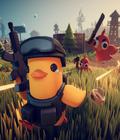
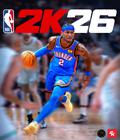
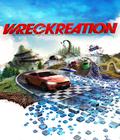




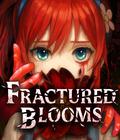

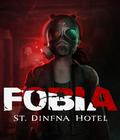 Fobia - St. Dinfna Hotel is a survival/horror game where you explore a decadent hotel across different timelines and uncover the dark history of a fanatical cult and your role in their plans.
Fobia - St. Dinfna Hotel is a survival/horror game where you explore a decadent hotel across different timelines and uncover the dark history of a fanatical cult and your role in their plans.











